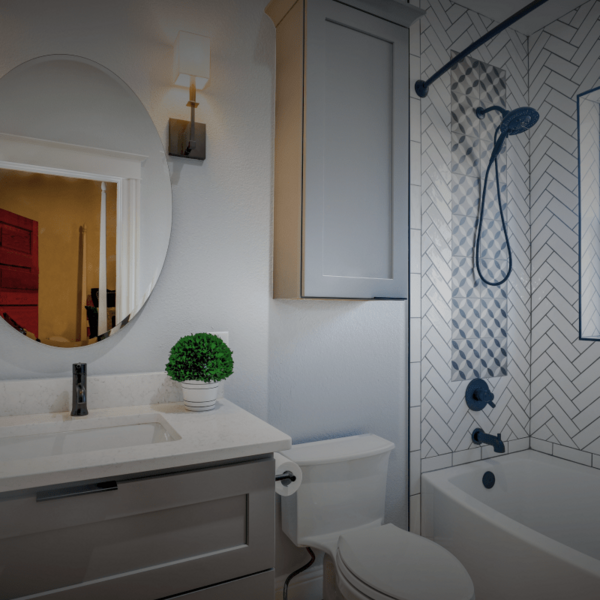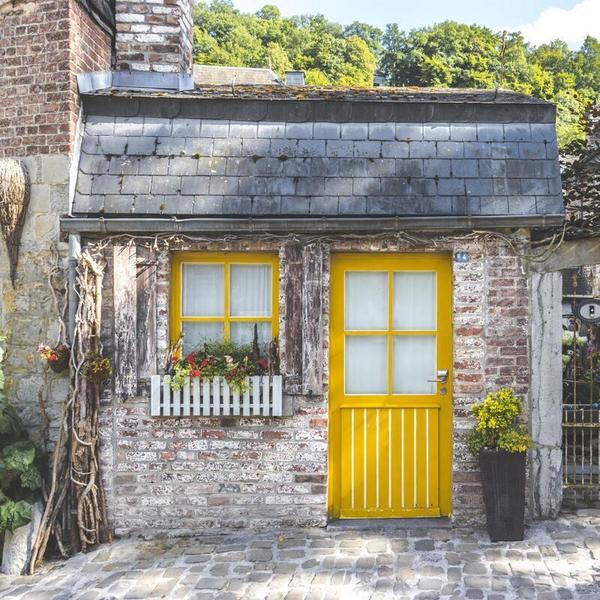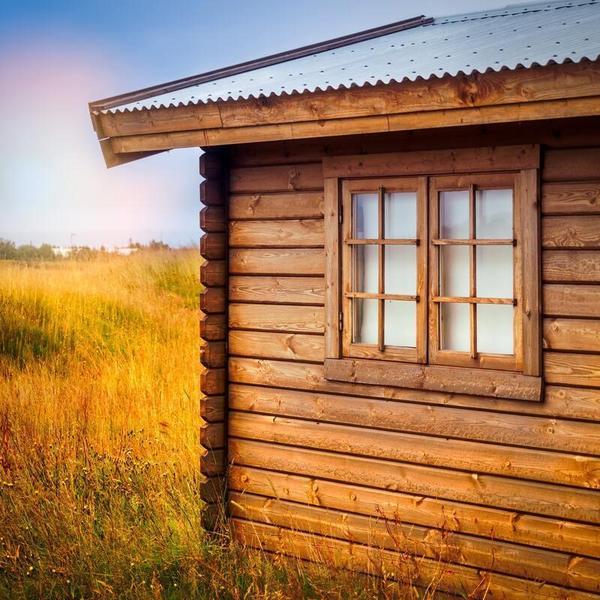Tiny houses are small, but the liability of owning one can be huge. Unlike traditional homes, tiny homes are more vulnerable to fire, theft, and depending on the location, even falling objects, landslides, extreme weather events, etc.
We review the six best tiny house insurance providers you should consider in 2023.
Strategic Insurance Agency: best overall
Strategic Insurance Agency offers reliable liability coverage, affordable rates, and easy liability claims handling, whether your tiny house is stationary or on wheels.
While it isn’t the most well-known provider, Strategic Insurance Agency specializes in tiny house insurance. Its policies are specially designed to cover any losses you can have as a tiny house owner. As a bonus, you don’t have to certify your tiny house to qualify for coverage.
The tiny house insurance policies include dwelling coverage up to $250,000, personal property coverage up to $25,000, contents theft coverage up to $3,000, liability coverage up to $1m, and medical payments coverage up to $1,000.
You can customize your homeowner’s policy with endorsements like detached structures coverage, contents replacements cost, trip coverage, dwelling theft coverage, and personal articles coverage for valuables.
You can also get coverage for primary and secondary tiny homes, short- and long-term rentals, and tiny vacation homes.
To get a quote, you need to fill in the online form or call an agent. Unfortunately, this company doesn’t have many options for customer support.
Pros:
- Policies for primary, rental, and vacation tiny homes.
- No certifications required
Cons:
- Not a well-known company
- Low coverage limits
Why should you consider it: With Strategic Insurance Agency, you can save some money by choosing one of the bundles of different insurance products.
American Family: best for stationary tiny houses
American Family’s insurance policies include a range of coverages designed to protect your stationary tiny house built on a permanent foundation as well as a mobile tiny house when it’s parked on a campsite or private land.
This company offers many of the same coverages you would wind up with regular homeowner’s insurance, such as dwelling, personal property, and liability coverage, with additional coverage endorsements that provide customized protection.
The endorsements that are available through this insurance carrier include matching side coverage, other structures coverage, trip collision coverage, and hidden water damage coverage.
You can get an instant quote estimate by using the American Family online calculator.
American Family has the best customer service of all insurance companies on this list. You can call or email an agent, visit an agent in person, or get your answers via the online chat tool.
Pros:
- Personalized policy bundles
- Great customer service
Cons:
- Unknown certification policy
- Not available in every state
Why should you consider it: American Family also offers savings for bundling your policies, installing smart home devices, paying the premium in full, sending reminder emails, etc.
Foremost Insurance Group: best for mobile tiny houses
If your tiny house has wheels, you need coverage that will protect it during transport.
Foremost offers travel trailer insurance with the added bonus of covering your mobile tiny house while parked.
This company is our top pick for mobile tiny homes that travel across the country. Foremost offers comprehensive policies that cover your tiny home in transit, with optional policies for when your tiny home is parked at a campsite, RV park, or private property.
As expected, Foremost mobile home insurance policies include protection from a long list of mishaps and accidents such as collision, fire and flood insurance, hail, windstorms, animals, theft, and even low-hanging branches.
Foremost tiny home insurance is available in all 50 states, but certain coverage is not available everywhere.
You can request an online quote from Foremost, but to reach their customer support, you’ll need to call or find an email address for an insurance agent.
Before you purchase coverage, make sure to contact the company to find out if your tiny house needs to be certified to get coverage and whether you qualify for any policy bundling deals.
Pros:
- Customizable RV policy with endorsements
- Online claim filing
Cons:
- Instant online quote not available
- No info on coverage limits
Why should you consider it: You can add an endorsement for attached accessory dwelling units, replacement cost coverage, emergency expense coverage, roadside assistance, vacation liability insurance, and full-timer coverage.
The Hartford: best for DIY tiny houses
If you’re building a DIY tiny house from scratch, The Hartford offers a builder’s risk insurance policy that protects the structure, materials, and equipment until you finish the job.
Why is this important?
Because DIY tiny house builders need to purchase a special type of insurance called builder’s risk insurance while their home is under construction.
The Hartford DIY tiny home insurance protects not only from potential building setbacks but also equipment theft and vandalism.
Among the builder’s risk insurance policies that this company offers, you can deal with natural disasters, fire, explosions, hail, lightning, and more.
Keep in mind, however, that coverage for builder’s risk insurance policies is approved only for a certain period, based on how long you expect the project to take.
Unfortunately, Hartford doesn’t include online information about policy periods, coverage limits, or certification requirements. You better speak with an agent before you purchase coverage to stay safe.
Like most agencies on this list, The Hartford also offers policy bundling, but from their online information, it’s not clear whether it applies to a builder’s risk policy.
Pros:
- Customizable policy add-ons
- Coverage in 50 states
- Great customer service
Cons:
- No information on coverage limits
- Only phone calls
Why should you consider it: Optional coverage for debris removal, ordinance/law coverage, and property replacement coverage.
Geico: best for vacation homes
Many tiny house aficionados use them as seasonal vacation spots, which puts these structures at an increased risk.
Geico is one of the better-known insurance providers on this list, and an excellent choice if you need to insure a vacation tiny house that you don’t use for an entire year.
A manufactured or RV insurance policy from Geico includes standard coverage for accidents like fire, falling objects, and explosions, as well as liability and medical payments coverage.
You can upgrade your temporary living coverage with optional policies for sports equipment, which would be a smart thing to do if you store bikes, skis, golf, club, or any other gear in your tiny vacation home.
Pros:
- Quote easy to get online
- House on wheels and RVs insurance policies
- A++ financial strength rating
Cons:
- No information on coverage limits
- Unknown certification policy
Why should you consider it: Geico has excellent financial strength, 24/7 customer service, and is available in 50 states.
Liberty Mutual: best for tiny rental properties
If you’re a landlord leasing a tiny house, you’d be pressed hard to find a better insurance option than Liberty Mutual.
Landlord insurance is always recommended if you have a tenant living in your tiny house or recreational vehicle full-time. You can easily contact a Liberty Mutual agent via phone, Meta, Twitter, or text message.
Liberty Mutual landlord insurance policy includes dwelling, premises liability, wind and hail insurance, as well as fair value protection that covers lost rent for the period your tiny home can’t be rented due to a covered claim.
You can bundle a landlord and home or auto insurance policy and get a lower premium, provided you’re claims-free for at least five years, and get a quote before your old landlord insurance policy expires.
Liberty Mutual rental property insurance coverage is available in every state, but to purchase this coverage, your tiny home will need to meet local building codes and zoning laws, just as regular rental homes would.
Before you purchase the policy, you better speak to an insurance representative to see if your tiny house has to be certified beforehand.
Pros:
- Excellent customer service
- Multiple discount opportunities for premium savings
- Online quote tool for instant insurance rates
- ‘A’ rating from AM Best for financial strength
Cons:
- Your tiny home may need to be certified and meet zoning laws
- No information online about coverage limits
Why should you consider it: When you purchase a policy, you can use the online customer portal or mobile app to make changes to your insurance programs.
FAQs
What is tiny house insurance?
Tiny house insurance is property insurance that provides coverage for damage to mobile homes and RVs. The type of insurance you’ll choose for your tiny home depends on how it’s built. Mobile home insurance covers a stationary tiny home that is built on a permanent foundation, while RV insurance covers a tiny home built on a trailer.
How much does tiny house insurance cost?
Tiny house insurance costs depend on different factors. For example, mobile home insurance from American Family Insurance costs $1,239 per year, for a 200-square-foot tiny home with $100,000 in dwelling coverage.
What types of tiny homes can be insured?
Any type of tiny home can be insured, but it’s easier to get coverage if your tiny house is certified. You can get a certification at The National Organization of Alternative Housing (NOAH), which certifies stationary homes, and the Recreational Vehicle Industry Association (RVIA), which certifies tiny homes on wheels.
What is the maximum tiny house size that is insurable?
The maximum insurable tiny house size is 600 square feet.
Final verdict
While there are many tiny house insurers, you should always pay attention to companies that have great customer service, additional endorsements, and coverage bundling.
For houses on wheels, the best option is Foremost, which also offers policies for sporting gear and other RV accessories.
If you’re building a tiny home yourself, The Hartford provides coverage for builder’s risk, material theft, and vandalism.
The best all-around company is Strategic Insurance Agency. It gives you the most important coverages for permanent dwellings as well as endorsements for additional protection.



